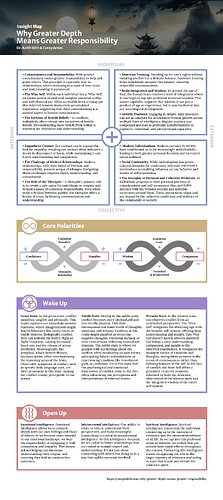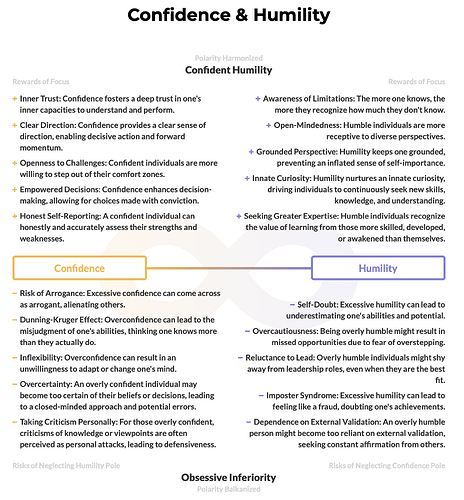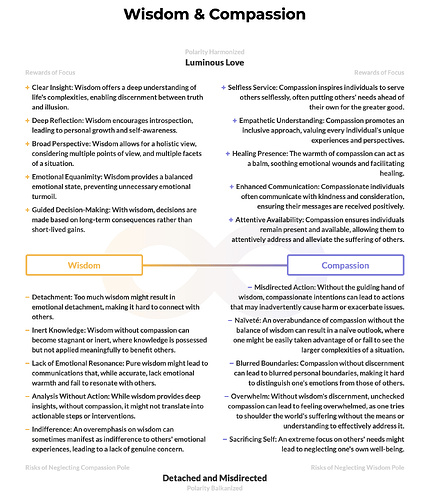Watch as Dr. Keith Witt and Corey deVos delve into the profound interdependence between human development and responsibility, exploring how our deepening self-awareness shapes our relationships and societal roles in an ever-evolving world. At the heart of the discussion is the compelling notion that as we evolve in our understanding and self-awareness, we bear a greater onus to guide, uplift, and positively influence those around us. This responsibility is especially important in the realm of relationships, where the path to trust and understanding is often fraught with challenges, yet rich with opportunities for growth.
This episode delves deep into Keith’s concept of the “Wise Self,” an intrinsic wellspring of wisdom and insight that transcends mere life experiences. This inherent wisdom, juxtaposed with the modern challenges of navigating individualism and societal conformity, paints a vivid picture of the human experience. The talk also addresses the often-unseen barriers we erect, from “fortresses of hostile beliefs” to societal pressures, and offers insights into dismantling these barriers for genuine connection and understanding.
This discussion is not just a reflection on consciousness and relationships; it’s a call to action. It challenges listeners to introspect, to recognize and nurture their innate wisdom, and to actively engage in practices that foster growth, empathy, and authentic connection. In a world where individualism often overshadows collective well-being, this talk serves as a timely reminder of our shared responsibility to contribute positively to the tapestry of human relationships and society at large.
Related Polarities
The interplay between Confidence and Humility is a dance of self-assuredness and self-awareness. Together, they form a dynamic polarity essential for personal growth, leadership, and effective communication. While both are valuable, their true power is realized when they are harmoniously integrated.
Confidence is the belief in oneself and one’s abilities. It’s the driving force that propels individuals to take risks, assert themselves, and face challenges head-on. With confidence, one can inspire others, make decisive choices, and stand firm in their convictions.
Humility, on the other hand, is the recognition of one’s limitations and the value of others. It’s an acknowledgment that no one has all the answers and that continuous learning and growth are essential. Humility allows for reflection, openness to feedback, and the ability to listen and adapt.
Integrated Polarity: Confident Humility
Confident Humility represents the harmonious integration of self-assuredness and self-awareness. It’s a blend of positive self-regard mixed with healthy humility and a recognition of uncertainty. This state allows individuals to hold knowledge, beliefs, identities, constructs, and thoughts lightly, understanding the transient nature of such constructs and not being rigidly attached to them. At the same time, they possess a deep-seated confidence in their ability to reconstruct, adapt, or shift these constructs to align with new realities as needed. Confident Humility enables individuals to act decisively while remaining open to feedback, lead with conviction while valuing the contributions of others, and recognize their strengths while continuously seeking growth. This integrated state empowers individuals to navigate the world with both conviction and adaptability, ensuring they remain grounded yet flexible in their approach to life’s challenges.
Disintegrated Polarity: Obsessive Inferiority
Obsessive Inferiority manifests when the poles of confidence and humility become disintegrated and dissociated from each other. When confidence operates without the grounding of humility, it morphs into overconfidence, which often serves as a mask or overcompensation for underlying feelings of inferiority. This overconfidence can lead to reckless decisions, an inability to accept feedback, and a facade of invulnerability. On the other hand, humility, when devoid of confidence, can lead an individual down a psychological spiral of self-deprecation and excessive self-doubt. Instead of being a source of reflection and growth, it becomes a paralyzing force, making it difficult for the individual to recognize or act upon their strengths. In the state of Obsessive Inferiority, the individual is trapped in a tug-of-war between these distorted versions of confidence and humility, leading to a turbulent inner landscape marked by constant self-questioning and an insatiable need for external validation.
Tips for harmonizing this polarity: If you find yourself leaning too heavily towards confidence, take a moment to reflect on the times you’ve been wrong or made mistakes. Seek feedback from trusted colleagues or friends, and practice active listening without defending your stance. Engage in self-reflection exercises or journaling to explore areas where you might benefit from more humility. On the other hand, if you feel you’re veering too much towards humility, practice self-affirmation exercises. Remind yourself of your achievements and strengths. Engage in activities that boost your self-esteem and confidence, such as taking on new challenges or learning new skills. The key is to oscillate between the two poles, recognizing the value in both and adjusting as needed.
Tips for integrating this polarity: To truly integrate the essence of both confidence and humility, one must engage in continuous self-awareness practices. Start by setting aside time for daily reflection, assessing situations where you exhibited either too much confidence or excessive humility. Engage in role-playing exercises, where you practice responding to situations from both poles. Attend workshops or seminars that challenge your beliefs and perceptions, pushing you to strike a balance between the two. Seek mentorship from individuals who embody “Confident Humility” and learn from their experiences. Remember, the goal is not to suppress one pole in favor of the other but to find a harmonious balance where both can coexist, complementing and enhancing each other.
Wisdom and compassion are two fundamental pillars that often guide our moral and ethical decisions. Together, they form a dynamic interplay, shaping our understanding and response to the world around us. While wisdom provides clarity, discernment, and the ability to see things as they truly are, compassion offers warmth, empathy, and a genuine concern for the well-being of others. The relationship between these two qualities is symbiotic; wisdom without compassion can become cold and detached, while compassion without wisdom can be misdirected or naive.
Wisdom is the deep understanding and realization of people, things, events, or situations, leading to the ability to apply perceptions, judgments, and actions in keeping with this understanding. It often involves discernment, the ability to judge which things are of over-arching value. Rooted in knowledge and experience, wisdom goes beyond merely knowing what is good and right, offering insights into the practical application of one’s understanding in real-world scenarios. However, when disconnected from compassion, wisdom can become overly analytical, detached, or even inert, failing to consider the emotional and human aspects of situations.
Compassion is the emotional response when perceiving suffering and involves an authentic desire to help. It’s not just the feeling of sympathy but an active form of empathy, where one wishes to alleviate or reduce the suffering of another. Compassion drives individuals to act, to support, and to be present for others in their times of need. It’s a unifying force, bridging gaps between individuals and fostering a sense of shared humanity. Yet, without the guiding light of wisdom, compassion can lead to misdirected actions, creating dependencies, or even fostering a sense of naïveté.
Integrated Polarity: Luminous Love
Luminous Love represents the harmonious blend of wisdom and compassion. It’s a state where deep understanding meets heartfelt empathy. In this integrated form, individuals navigate life with both clarity and kindness. They offer solace without losing sight of reality, and they guide with both heart and intellect. Luminous Love is reminiscent of the Bodhisattva ideal in Buddhism, where one seeks enlightenment not just for oneself but for the benefit of all beings. It also echoes the Christ-like embodiment of love and wisdom.
Disintegrated Polarity: Detached & Misdirected
When wisdom and compassion are unintegrated, they manifest as Detachment and Misdirected Action. Wisdom, without the balancing force of compassion, becomes cold, analytical, and detached. It might lead to overthinking and emotional disconnection. On the other hand, compassion without the grounding of wisdom can become misdirected, leading to overwhelming emotions, blurred boundaries, and misplaced sympathy. This disintegrated state can result in individuals feeling torn between their head and heart, often leading to confusion and inaction.
Tips for harmonizing this polarity: To harmonize the wisdom and compassion polarity, individuals should practice oscillating between the two. Spend time in contemplative practices to cultivate wisdom and engage in acts of kindness to nurture compassion. Recognize when you’re leaning too heavily on one pole and consciously shift to incorporate the other. For instance, if you find yourself overanalyzing a situation, take a moment to connect with your heart and consider the emotional aspects.
Tips for integrating this polarity: To truly integrate wisdom and compassion, one must see them not as opposing forces but as complementary aspects of a holistic approach to life. Engage in practices that combine both, such as loving-kindness meditation, which cultivates compassion through a foundation of wise understanding. Continuously reflect on your actions and decisions, asking if they arise from a place of both understanding and love. Over time, this conscious effort will lead to the natural emergence of Luminous Love.


